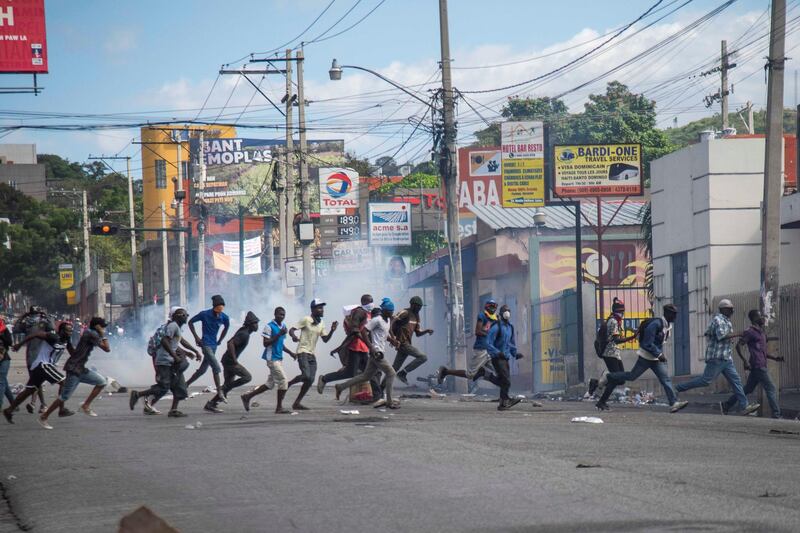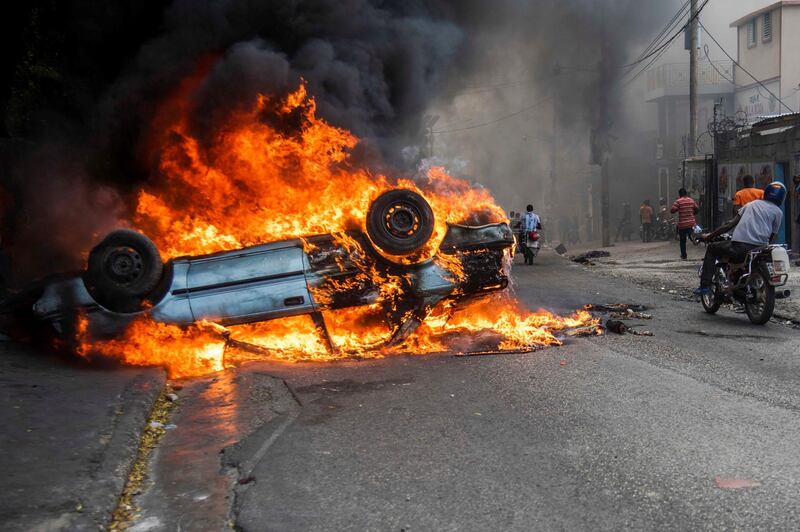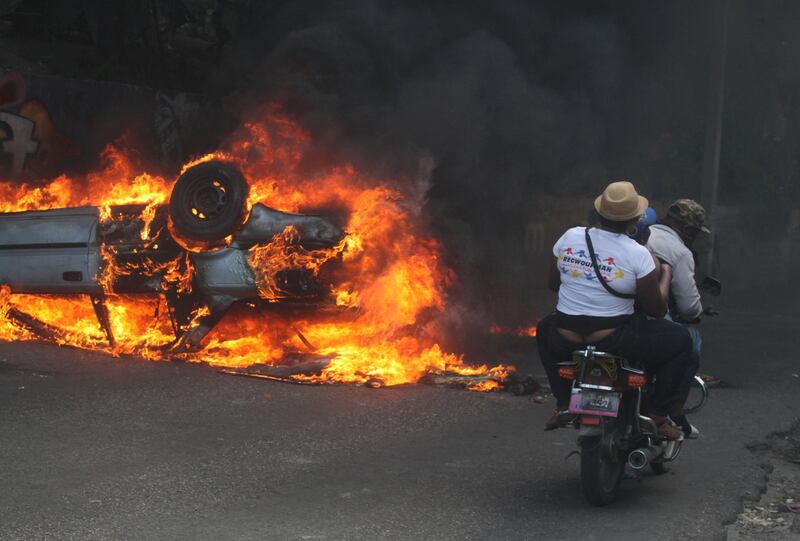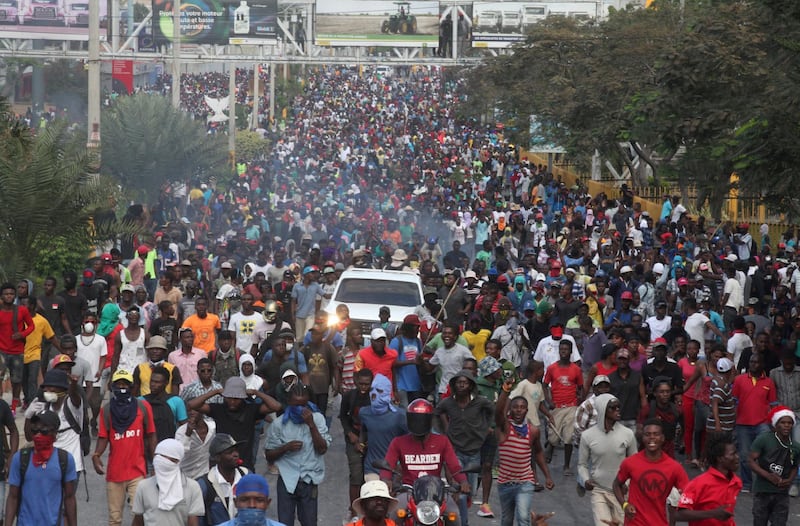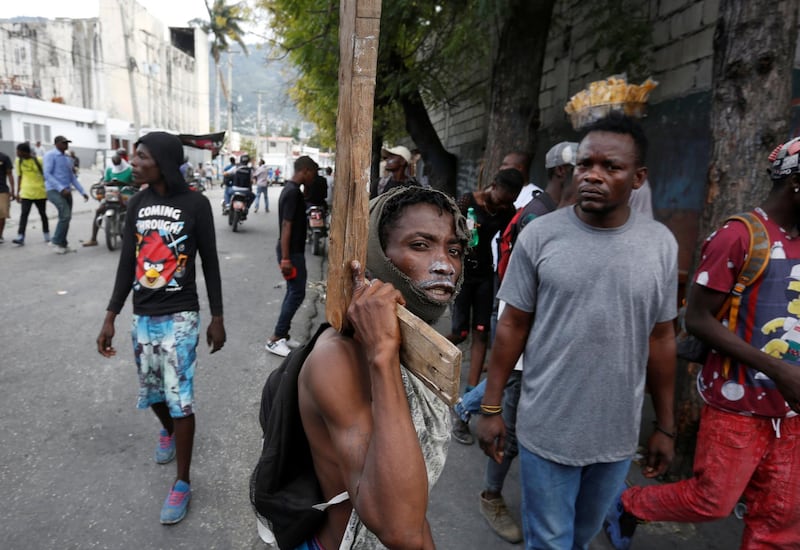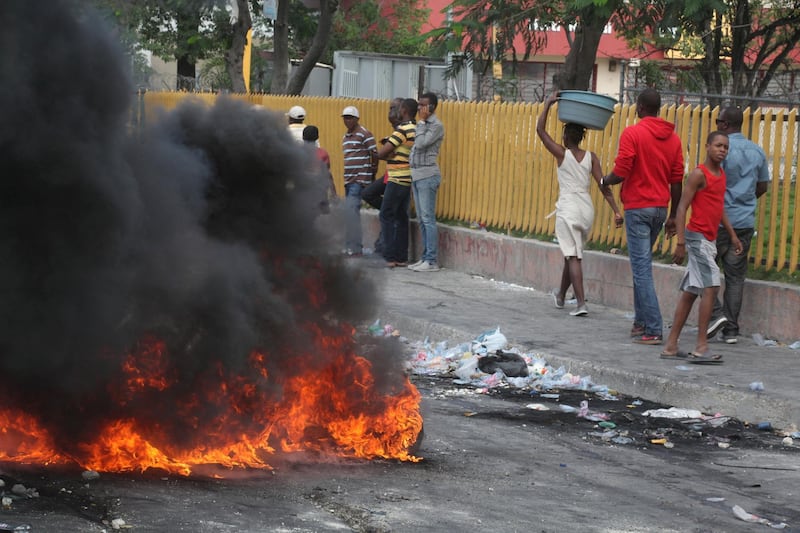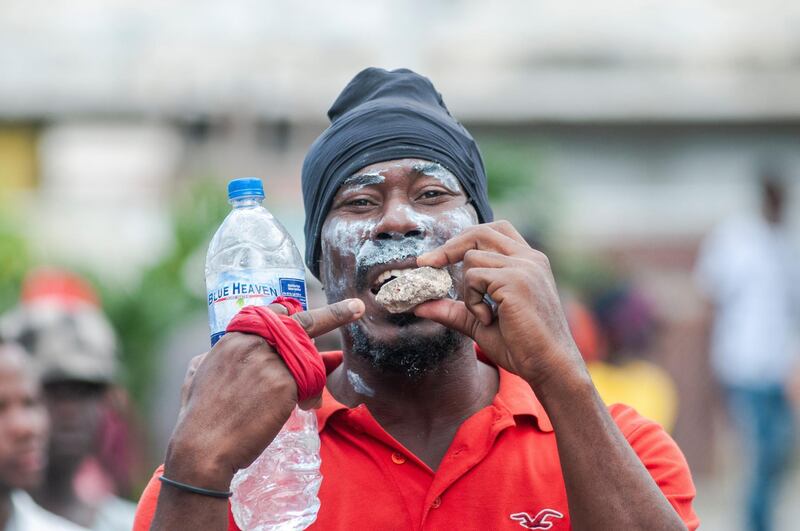Whether using social media to fight corruption or marching in protests that have brought the country to a halt, the anger of Haiti's young people at their lack of prospects is boiling over in increasingly dramatic ways.
Marco Beausejour, a graduate who struggles to make ends meet driving a motorbike-taxi, said that embattled President Jovenel Moise "launched clean-up programmes which he said would create 50,000 jobs".
"So young people are graduating from university and he has only brooms to offer them?" he asked.
"Our parents made huge sacrifices to pay for our education and then the only choice we have is to sweep the roads?" said the 27-year-old, who studied accounting at university.
"This president really does not respect us."
Despite his hardship, Mr Beausejour acknowledged that at least he had the chance to get a higher education: many of the young people from the capital's vast slums never finish high school.
Demonstrating, as hundreds of them did on Monday, gives young people from shantytowns like Cite Soleil a chance to vent their rage at an unjust system, even if some see it as an opportunity to smash store fronts and engage in a bit of looting.
More than half the population of the impoverished Caribbean nation is under the age of 25, yet young people have almost as little representation in the corridors of powers as they do in the workforce.
"Getting into business is tough because it's a closed shop and corrupt," said Pascale Solages, 31. "You can't get a loan to start a business and any jobs on the market demand years of experience which people obviously don't have."
Cronyism
With the private sector concentrated in the hands of a few powerful families, the public sector is the main employer in Haiti, yet the administration is far from being representative of the population.
The most recent survey of civil servants, published in February 2018, showed that 80 per cent of state employees were 35 or older.
The frailty of the pension system means people are reluctant to retire, one reason why there are so few opportunities for young people to break into the sector.
But the main challenge to recruiting the best young candidates into the public sector is cronyism.
"Corruption means that the administration is packed with senators and deputies who use their office to find jobs for their friends and relatives, people lacking experience or expertise, said Solages, who works on an anti-graft campaign called the "Petrocaribe Challenge".
The movement, launched last year on social media, is calling for full transparency in the distribution of money from the Petrocaribe fund, a development programme launched by Venezuela more than a decade ago.
In January, a court issued a report accusing a dozen former ministers and senior officials of disastrous mismanagement and possible embezzlement of the aid fund, with no clear accounting of some $2 billion (Dh7.3bn).
'Youths dying at sea'
Frustrated at the lack of jobs, and struggling with rising inflation, many young people see leaving their homeland as the only way to build a future.
Some 165,000 Haitians have already wound up in Chile in the past four years. Faced with this unprecedented wave of migration, the Chilean government began in April demanding entry visas for citizens of the poorest nation in the Caribbean.
And while Chile starts to close its doors, the United States — the other traditional destination for Haitians seeking a better life — is also looking less inviting.
The so-called Temporary Protected Status granted to Haitians after the 2010 earthquake is due to expire in July unless the Trump administration decides to extend it.
Despite those obstacles, many young Haitians are still determined to make the perilous journey into exile that can cost them everything.
At the beginning of February, around 30 Haitians drowned off the coast of the Bahamas when their makeshift boat sank.
"Young people are setting out in small sailing boats and dying at sea," said Mr Beausejour. "But if there was just some work here, they'd stay, even if they didn't earn much."


